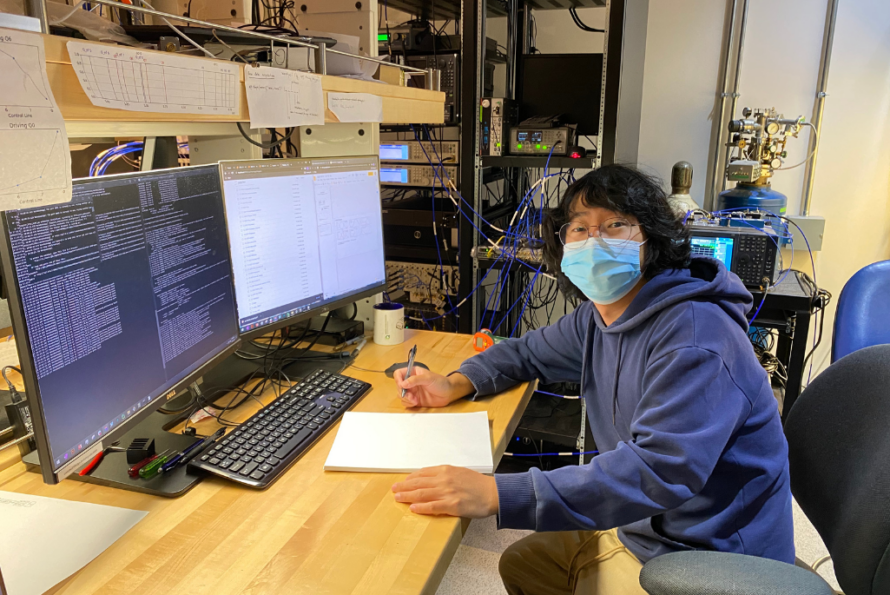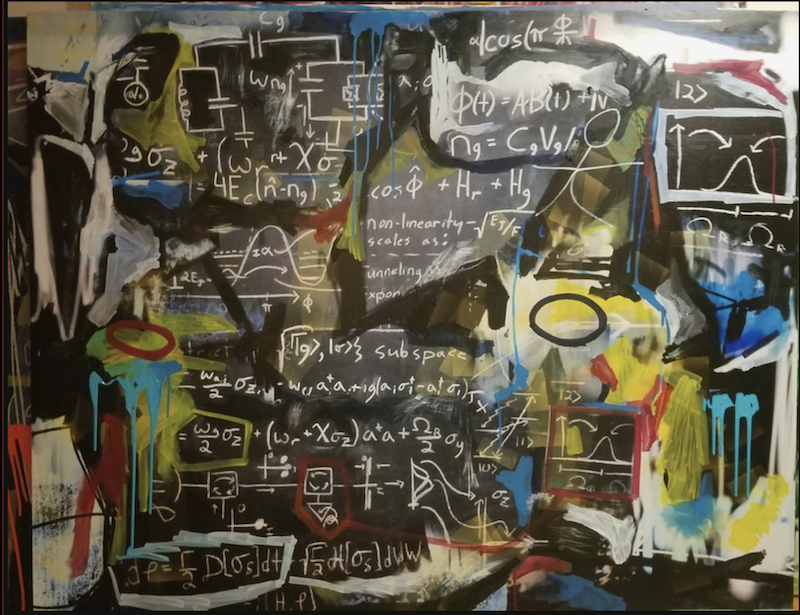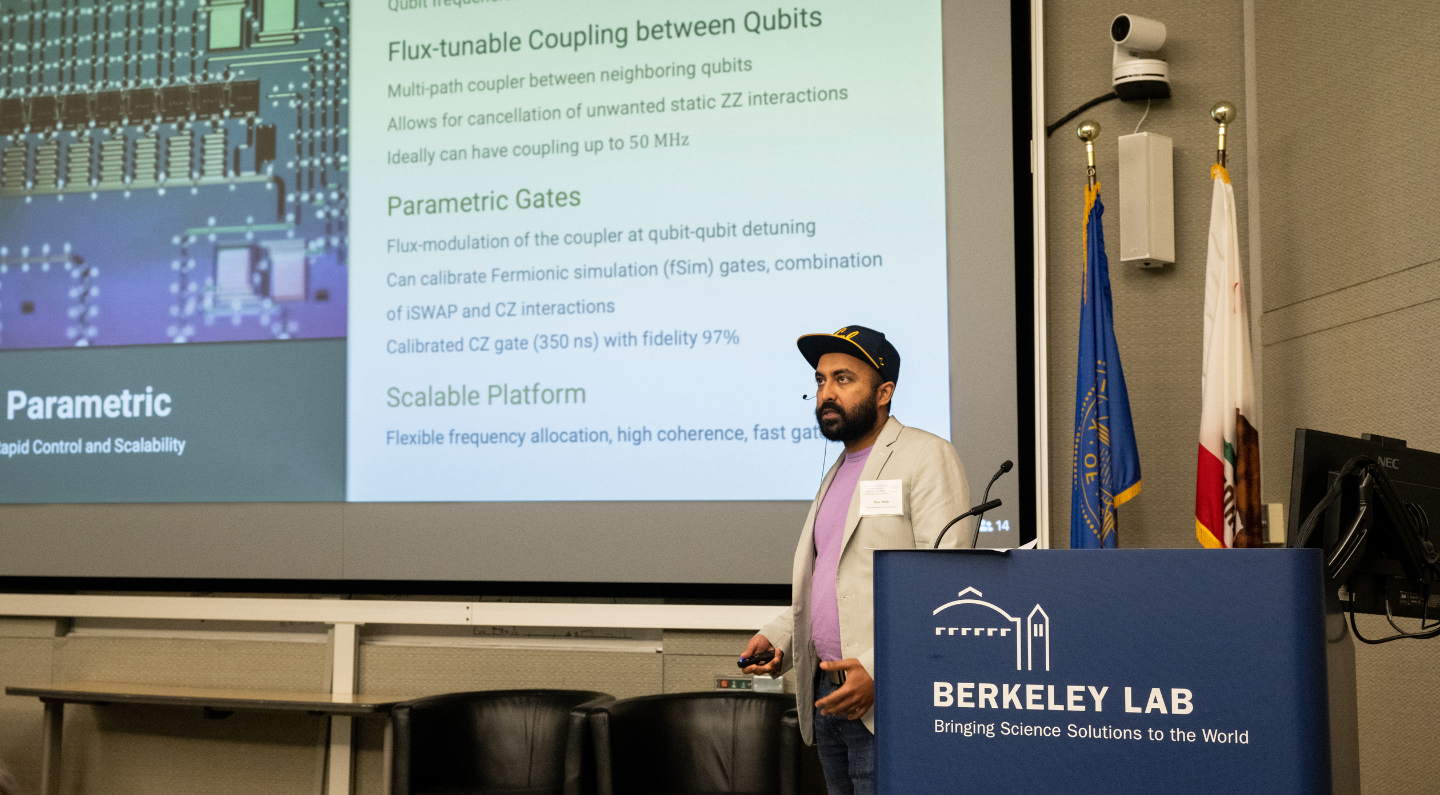The Advanced Quantum Testbed (AQT) at Lawrence Berkeley National Lab (Berkeley Lab) is wrapping up the first five years of operation and celebrating the fourth year of its user program. AQT is a state-of-the-art quantum computing research laboratory based on superconducting circuits funded by the U.S. Department of Energy (DOE) Office of Science Advanced Scientific Computing Research (ASCR) program. Established in 2018 with a five-year budget of $30 million, the DOE Office of Science awarded AQT $33 million in 2023 with year-over-year escalations for a five-year renewal.
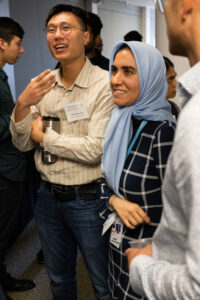
From left, AQT researchers and staff: Trevor Chistolini, Kan-Heng Lee, Zahra Pedramazi, Christian Juenger
AQT builds on the decades-long research and development at Berkeley Lab and benefits from DOE’s Office of Science investments. AQT is one of the two DOE Office of Science testbeds open to the external research community. The interactive collaborations at AQT have allowed novel quantum information science with systems engineering suitable for scientific applications and research tools that rely on gate-based quantum computing. The testbed has also allowed early-career scientists and students to access world-class quantum computing hardware and software systems, establishing a unique environment for active mentoring, open discussion, and networking between stakeholders in the quantum ecosystem while enabling the co-design of the next generation of controls, devices, and algorithms.
Two-Day Summit
A two-day hybrid summit was held in May 2023 at Berkeley Lab to celebrate AQT’s renewal and discuss the future directions of AQT. The summit was a unique opportunity for users, stakeholders, and colleagues in the quantum information science (QIS) community to come together, share the latest experimental breakthroughs and lessons learned, and jointly plan the path forward. Susan Clark, the director of the Quantum Scientific Computing Open User Testbed (QSCOUT) at Sandia National Laboratories, also presented.
The first day’s summit agenda focused on scientific, technical, and operational highlights from AQT and its growing testbed user base. It included presentations from AQT leadership, including Irfan Siddiqi, director; Kasra Nowrouzi, head of hardware; Ravi Naik, head of measurement, and Christopher Spitzer, operations lead. They discussed the value of agile research projects in AQT’s evolution and synergizing with efforts in industry.
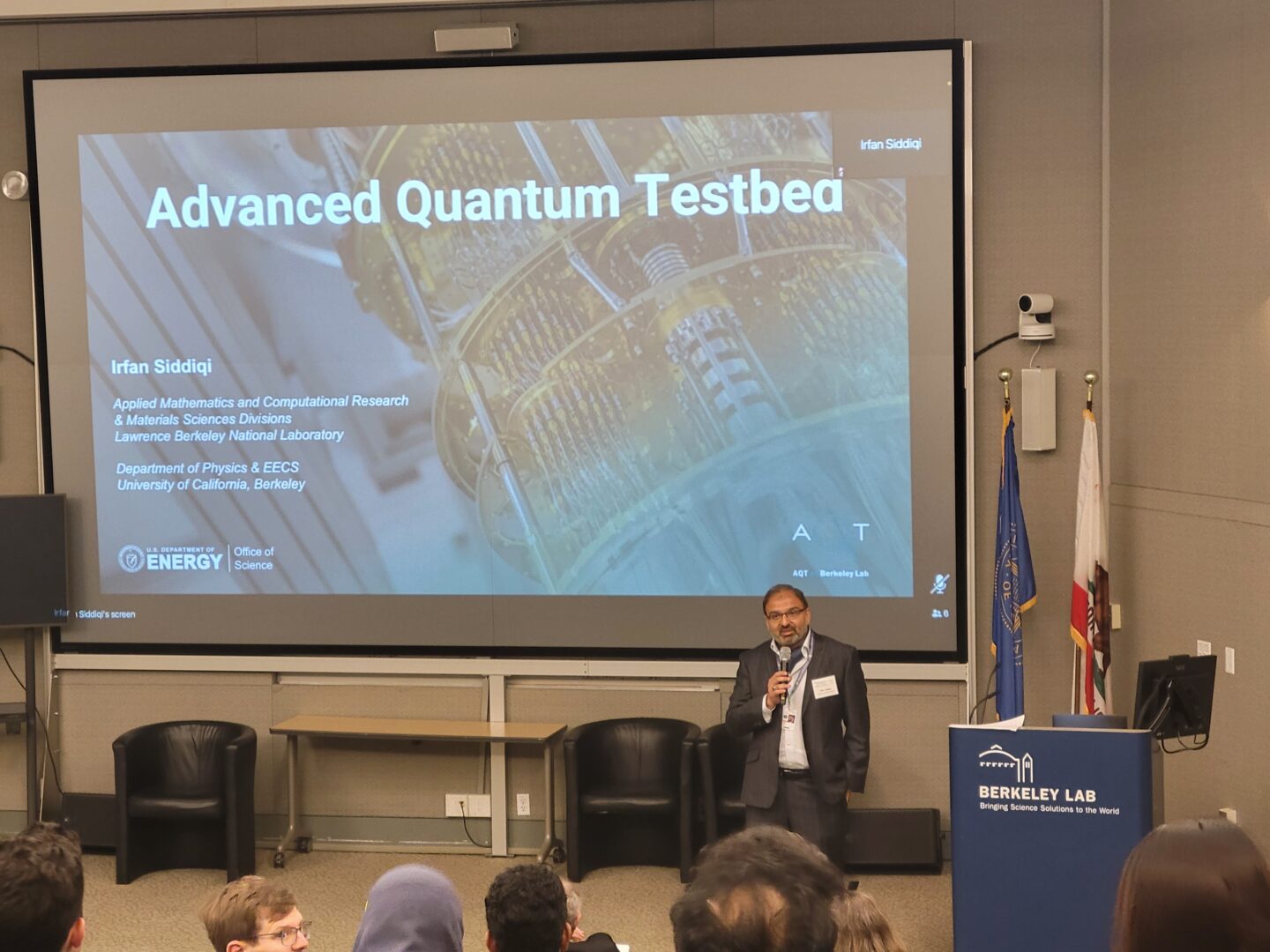
Six testbed users showcased their latest research and development at AQT, including Samuele Ferracin (Keysight Technologies), Victory Omole (Infleqtion), Timothy Proctor (Sandia Labs), Sofia Quaglioni (Lawrence Livermore National Laboratory), Marina Radulaski (UC Davis), and Katie Klymko (NERSC at Berkeley Lab).
Three AQT researchers, Gang Huang, Long Nguyen, and Christian Juenger, presented advances in quantum processor development and control, including open-source controls and novel superconducting circuit elements.
“As part of its mission to bridge fundamental science and quantum algorithms beyond single, academic, proof of concept demonstrations to a broad range of informative and impactful calculations, AQT complements other resources in the quantum ecosystem by providing users access to the latest protocols and devices,” said Ravi Naik, head of measurement.
The AQT-affiliated postdoctoral researcher Akel Hashim and graduate students Brian Marinelli and Noah Goss from the Quantum Nanoelectronics Laboratory (UC Berkeley) also presented on the latest breakthroughs in collaborative projects at AQT on error mitigation protocols, qutrit entanglement, and novel processors.
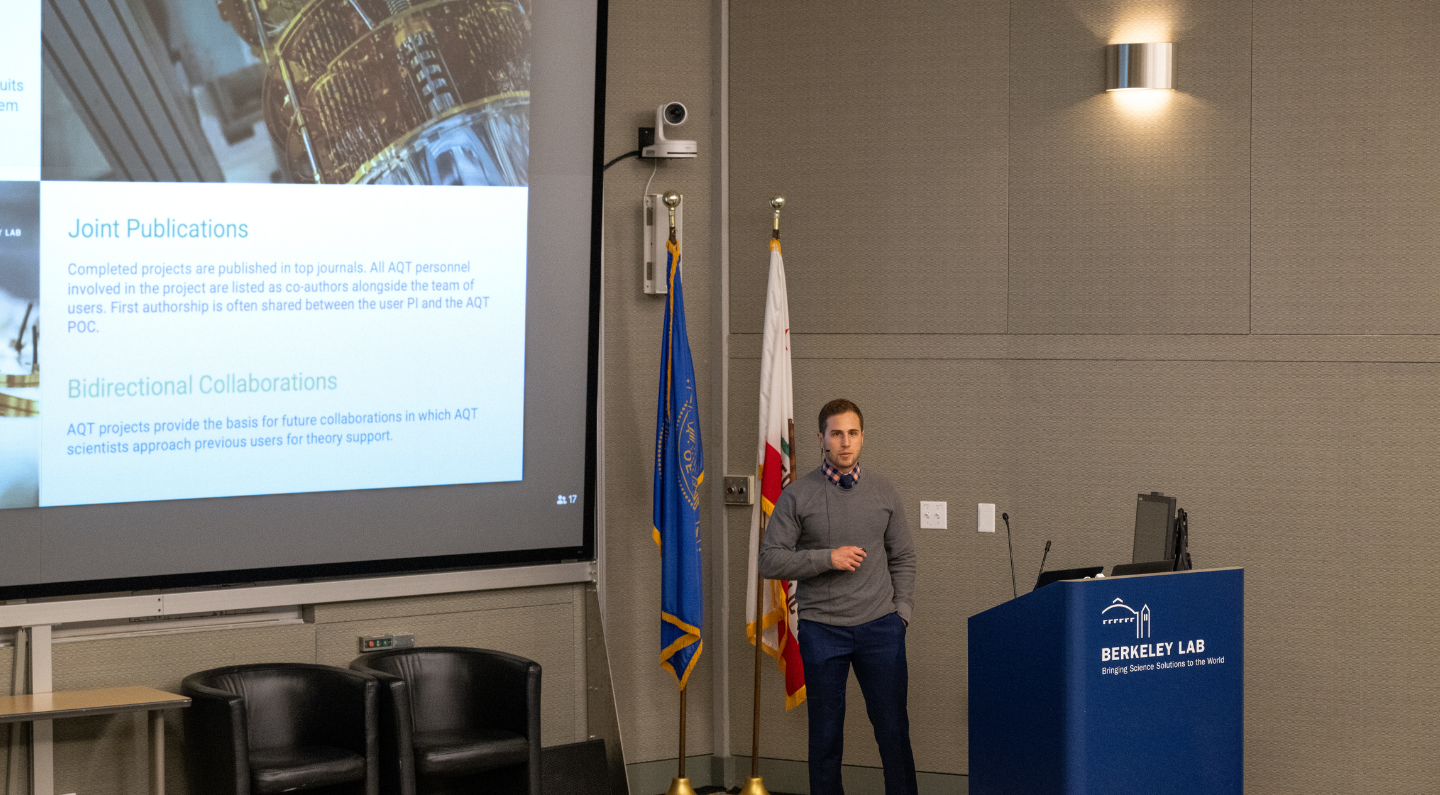
AQT has built a truly multidisciplinary in-house team while leveraging dynamic partnerships with academia, national labs, and industry. It is an ideal training laboratory to engage with various projects and prepare a growing workforce,” said Christopher Spitzer, operations lead.
AQT has hosted several undergraduate students for extended thesis projects, often for a year or more. Three former AQT interns, Merrell Brzeczek, Donald Ferschweiler, and Harshita Krupadanam, shared how the opportunity at AQT inspired them to pursue advanced degrees in the field at UC Berkeley, UC Santa Barbara, and California State University, Long Beach. Three AQT alumni, Marie Lu, Brad Mitchell, and Alexis Morvan, also contributed with presentations about AQT’s unique training that prepared them to pursue different opportunities at IBM, Google, and PsiQuantum.
In addition to opportunities for informal networking, participants enjoyed detailed virtual and on-site tours of AQT’s research laboratory, comprising the design and fabrication of novel qubits, architecture of quantum processors, cryo-packaging and cryogenics, room temperature controls, optimization tools for quantum circuits and quantum characterization, verification, and validation.
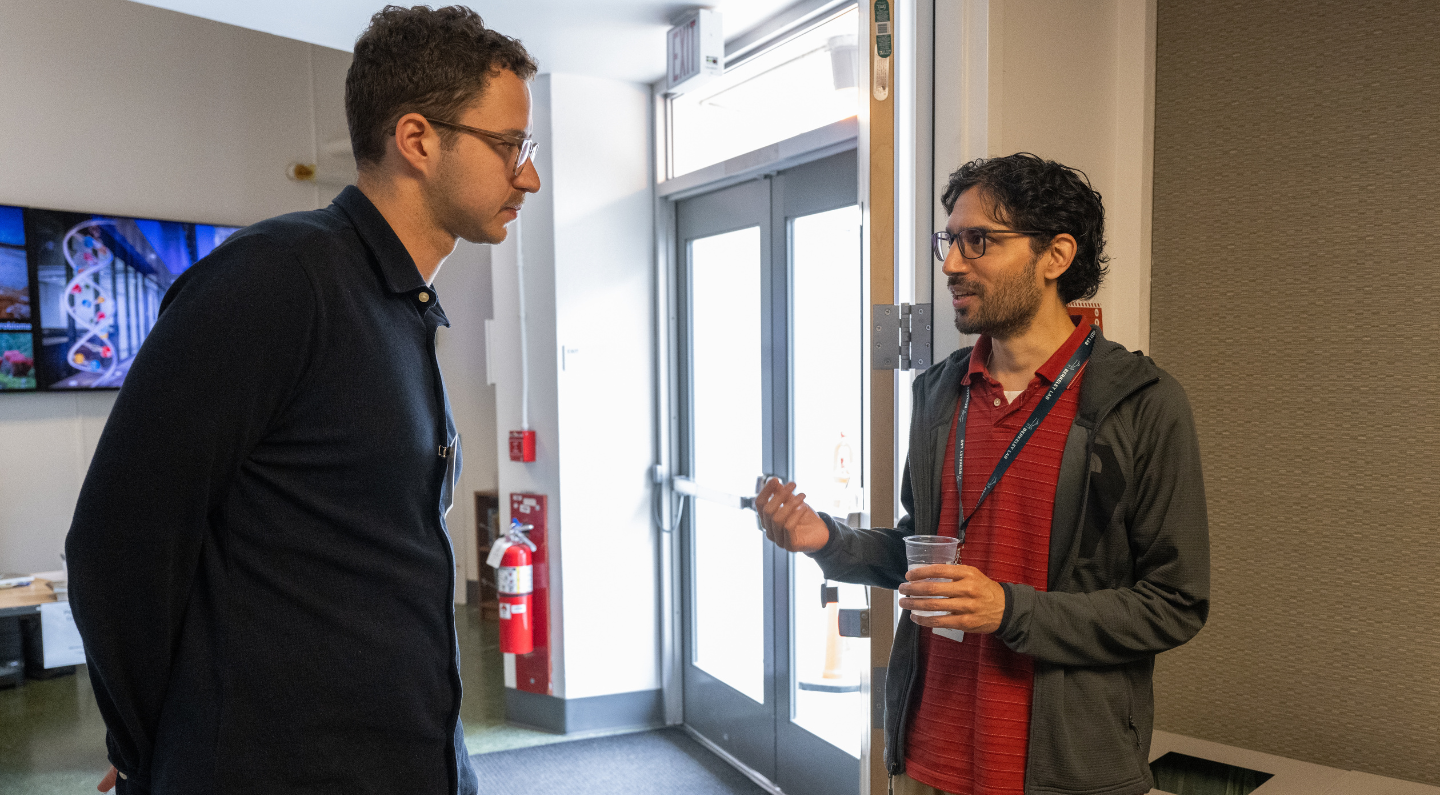
“AQT fosters a unique open access collaborative research culture providing users with free and complete access to the full stack of quantum computing hardware and software. Protocols and methods developed as a part of one user project often find enabling applications in other user projects, resulting in a virtuous cycle that continually advances the testbed over time,” said Kasra Nowrouzi, Head of Hardware
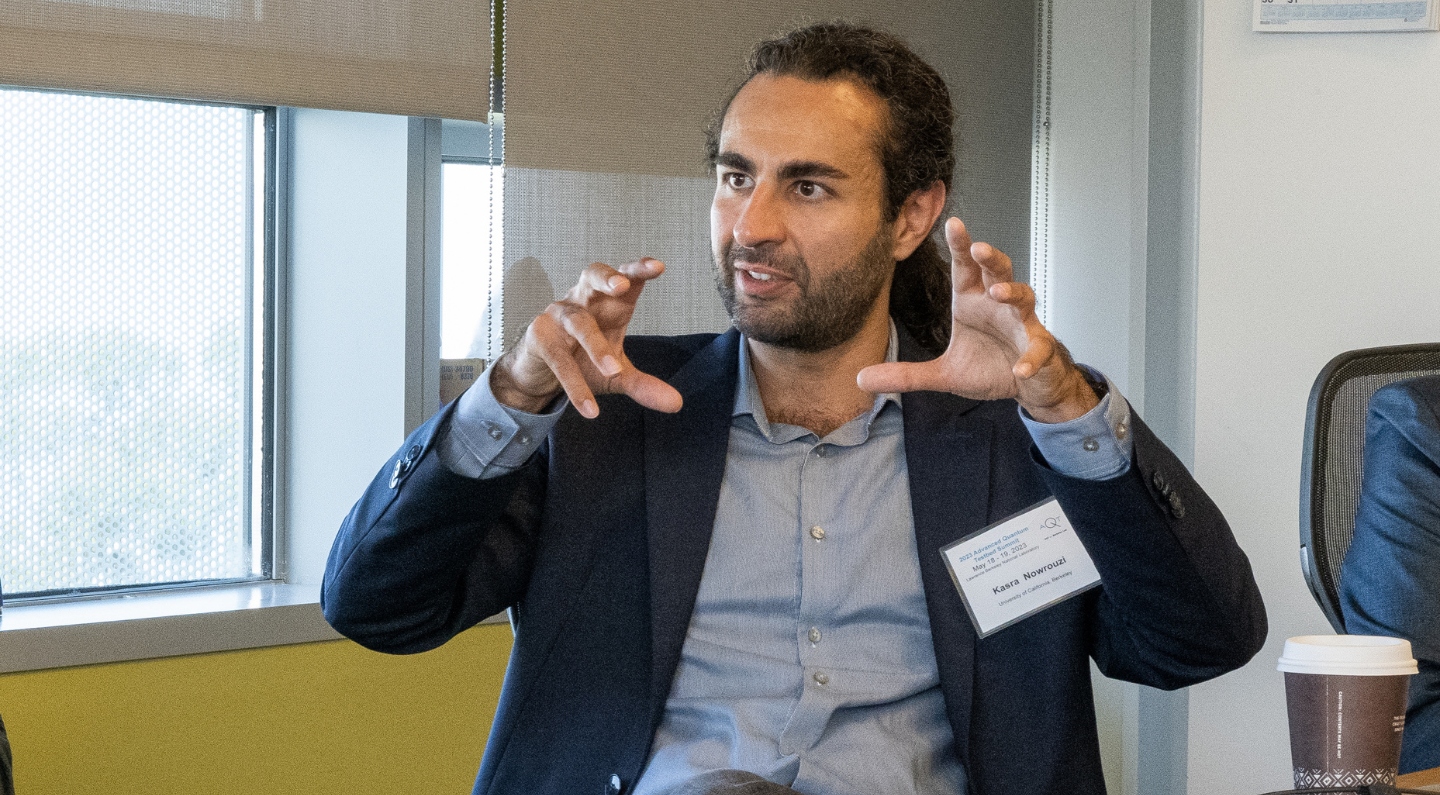
Deeper Dive into QIS Co-design
During the second day of the summit, discussions focused on the next generation of DOE Office of Science testbeds. Renowned researchers in theory and experimentation, including Susan Clark (Sandia Labs), Liang Jiang (University of Chicago), Isaac Kim (UC Davis), John Martinis (UC Santa Barbara and Qolab Inc), Sofia Quaglioni (LLNL), and Joel Wallman (Keysight), presented on the challenges and opportunities for different quantum systems and technologies. The live and virtual audiences raised questions about supporting the increasing complexity of quantum processors. For example, how to improve the quality of qubits and error protocols and how new system requirements will impact quantum circuits, especially with hybrid quantum-classical approaches. After the panel discussions, two breakout sessions were held for a deeper dive into quantum hardware, algorithms, and applications.
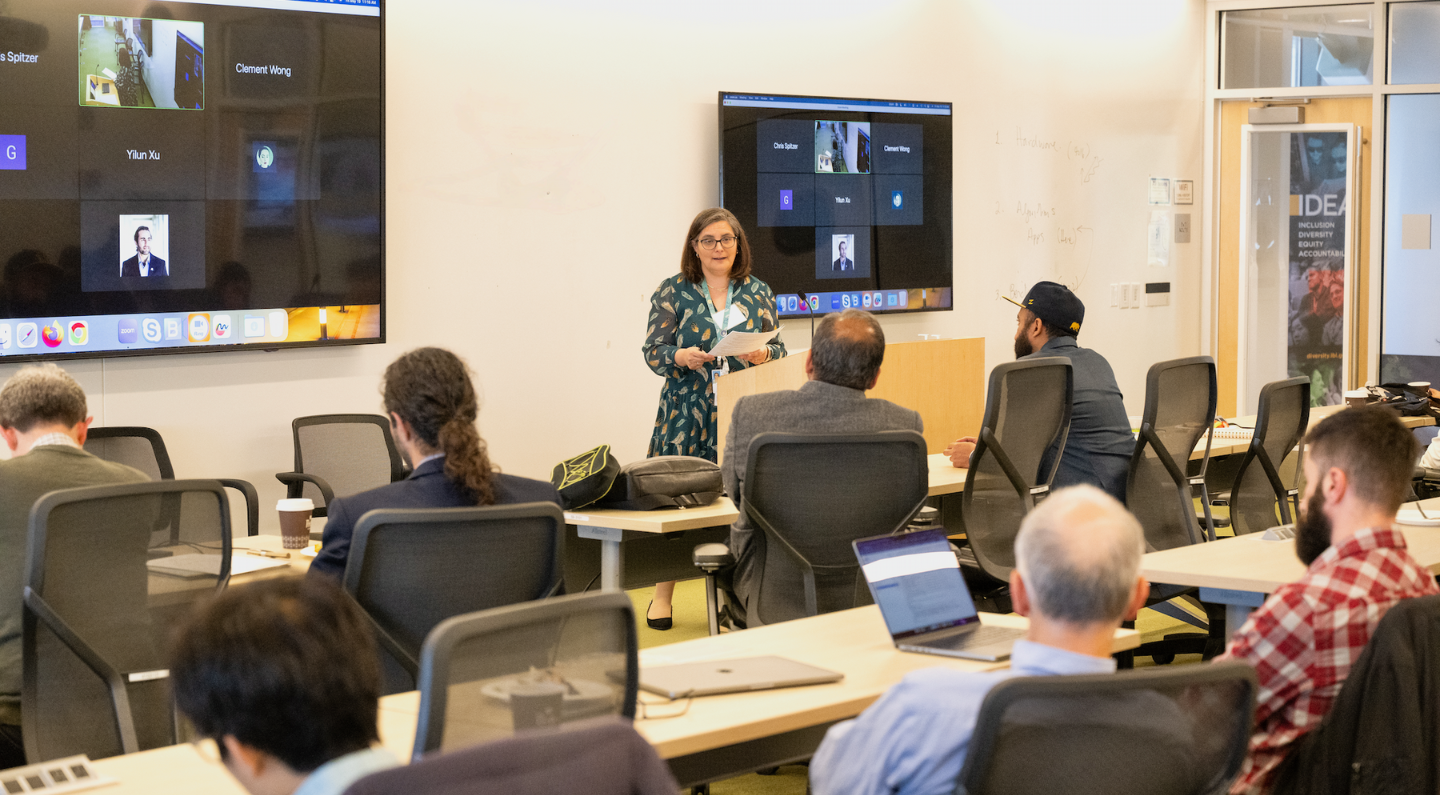
At the breakout sessions, participants focused on critical near-term algorithms and applications with quantum processors that remain noisy and error-prone. Testbeds can open up novel capabilities particularly suitable for applications in nuclear physics and lattice gauge theory simulation. To this end, the discussion specifically focused on developing and testing techniques with crosstalk-aware compilation and error mitigation to optimize near-term devices as well as unexplored quantum processor capabilities that could be useful, such as open quantum system bath engineering, measurement-based quantum processing, and multi-device distributed quantum computing.
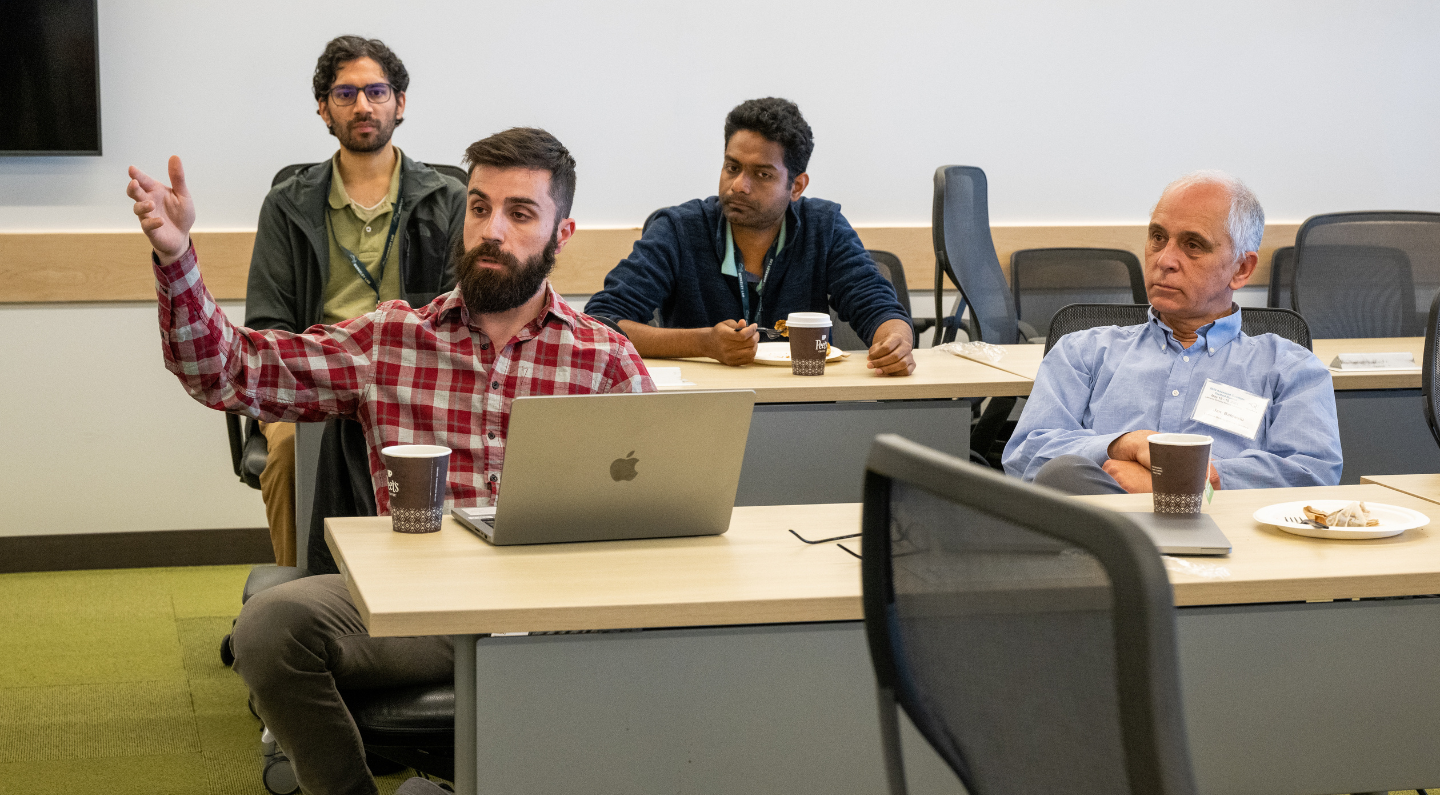
The participants in the hardware breakout session reflected on the value of continuing to explore quantum processor architectures. The ideal path to next-generation quantum processors is not known. The field is currently exploring several types of advanced non-transmon qubits and approaches to multi-qubit architectures. Therefore, disseminating the lessons learned and best practices with the broader community can optimize design, fabrication, and experimentation.
Participants also shared the value of exploring highly complex quantum states or the “entanglement frontier” through easy, deep access to testbed systems at the scale of 10-40 qubits, where consistent noise models and enhanced system stability were available. In addition to addressing hardware and architecture challenges, a separate class of methods and protocols will remain of significant strategic value in enabling such platforms in the coming years. These include benchmarking and mitigation tools to help researchers understand and ameliorate noise and error mechanisms in near-term quantum devices, gates, and protocols to optimally use higher levels in qudits and expand the size of the Hilbert space for existing quantum processors.
Another area of interest in the breakout sessions was the interplay of classical and quantum computational resources and hybrid algorithms. Some participants expressed that it remains to be seen how high-performance computing (HPC) and quantum computers would give hybrid algorithms any additional advantage. Consequently, control systems for quantum computers at the intersection of these testbeds capable of executing quantum and hybrid algorithms would facilitate such explorations. Investigations of resource requirements, such as memory and I/O, are another relevant challenge mentioned by participants during the sessions as quantum circuit sizes increase in the coming years.
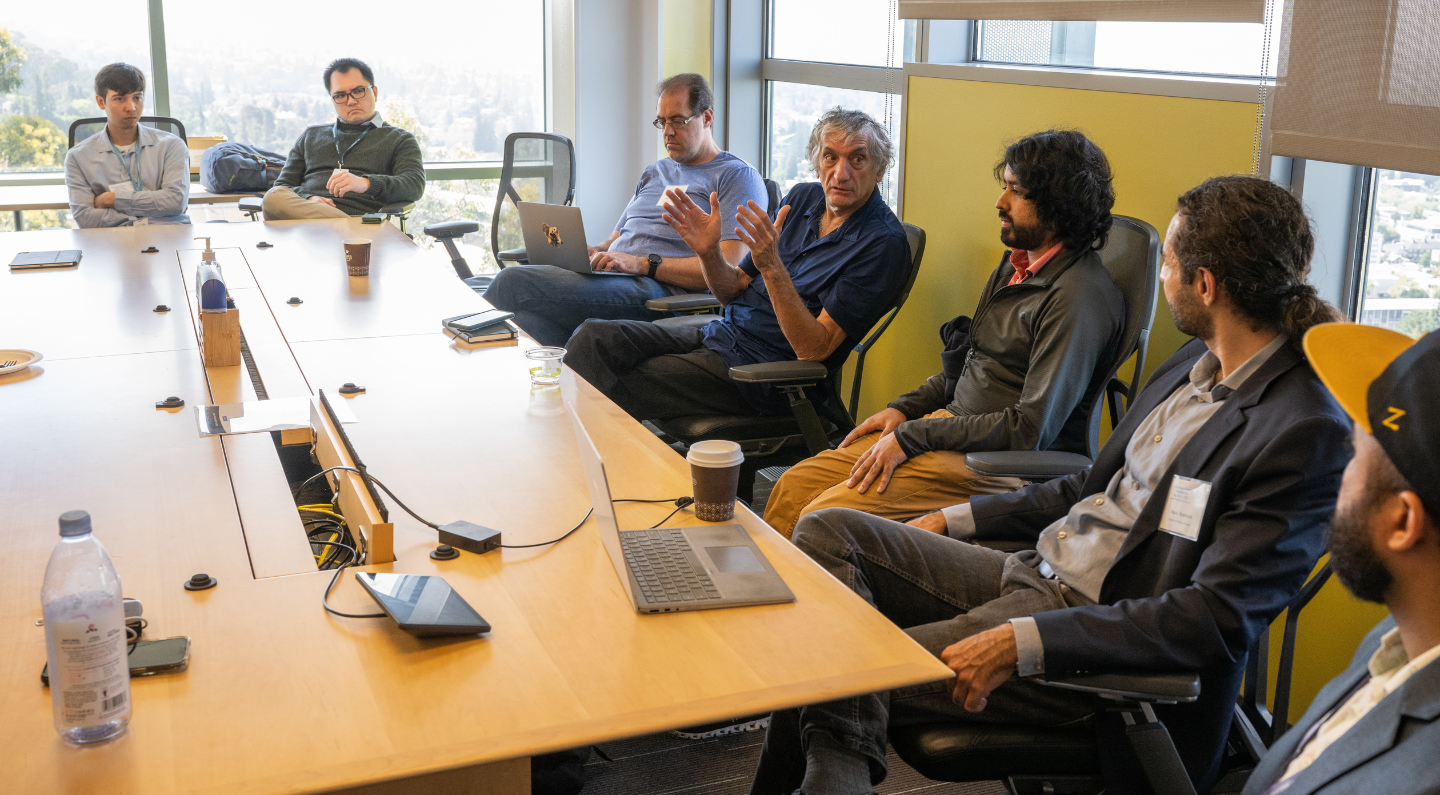
Open Testbed Accelerates Fundamental Research
AQT and the next generation of DOE testbeds will continue to enable the co-design of the entire stack of quantum computing platforms from the quantum processor to control hardware, software, compilation, optimization, and quantum and hybrid algorithms. User projects at AQT have leveraged the full stack access to pursue this fundamental research direction in a limited fashion, which is unavailable on closed quantum computing platforms.
During AQT’s summit, dozens of researchers, students, and alums explored many questions from a variety of topics ranging from how to improve AQT’s flexible architecture and increase community access to DOE testbeds to how to train and inspire new talent while designing experiments in nuclear physics and materials science that leverage hybrid-quantum-classical computing or novel gate operations in superconducting quantum processors. AQT is poised for continued growth for the next five years of operations as it accelerates the fundamental research that paves for extensible quantum computers and prepares new generations of scientists.
To continue to read the latest peer-reviewed AQT publications and experimental breakthroughs, visit: https://aqt.lbl.gov/news/
# # #
Founded in 1931 on the belief that the biggest scientific challenges are best addressed by teams, Lawrence Berkeley National Laboratory and its scientists have been recognized with 16 Nobel Prizes. Today, Berkeley Lab researchers develop sustainable energy and environmental solutions, create useful new materials, advance the frontiers of computing, and probe the mysteries of life, matter, and the universe. Scientists from around the world rely on the Lab’s facilities for their own discovery science. Berkeley Lab is a multiprogram national laboratory, managed by the University of California for the U.S. Department of Energy’s Office of Science.
DOE’s Office of Science is the single largest supporter of basic research in the physical sciences in the United States, and is working to address some of the most pressing challenges of our time. For more information, please visit energy.gov/science.
